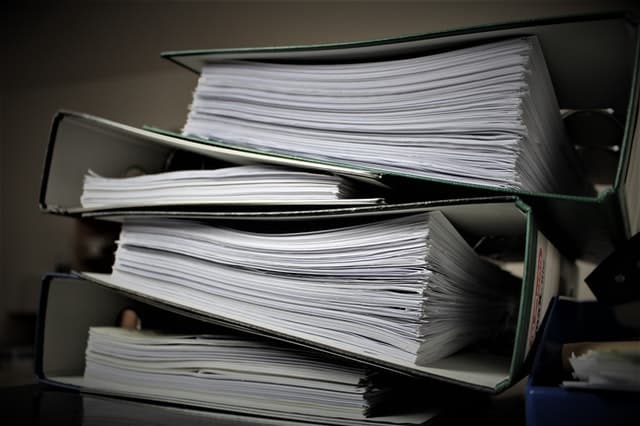Why to Hire a Technical Ghostwriter: 5 Ways a Technical Ghostwriter Can Help Your Company
September 10, 2021
The great American author Mark Twain once said, “Writing is easy. All you have to do is cross out the wrong words.” No offense to Mr. Twain, but writing is not quite so simple. Writing requires a combination of skill and expertise that takes time to develop.
And in the business world, time is a luxury few companies can afford. As a result, producing text, particularly technical texts, may be onerous in terms of time and money when done in-house. Thus, hiring a technical ghostwriter can save time and money.
In this article, we will dive into how to hire a technical ghostwriter as well as the ways a technical ghostwriter can help any company improve its interaction with clients and business partners.
When to Hire a Technical Ghostwriter
Companies often balk at the idea of hiring a technical ghostwriter. In some cases, businesses handle highly confidential information. As a result, an outsider may pose a risk. Also, some firms may feel that a ghostwriter may not fully capture their corporate culture.
Those arguments are all valid.
Nevertheless, there are situations in which hiring a technical ghostwriter makes sense. Specifically, the decision to hire a ghostwriter boils down to time and money.
Often, companies may have an abundance of technical experts. However, they may lack experienced writers.
The issue with inexperienced in-house writers lies in the time it may take to produce a technical document. Moreover, tapping an existing staff member may take time away from their main tasks.
Consequently, these staff members end up dedicating precious working hours to non-essential tasks.

Unless a company has dedicated in-house writing staff, hiring a technical ghostwriter is almost always more cost-effective.
A technical ghostwriter has a combination of expertise and skill. As a result, a good technical ghostwriter can help reduce the time and cost associated with producing high-quality technical documentation.
Ghostwriting expert Jane Friedman has this insightful tidbit to offer:
“Ghostwriting is a fantastic option for people who have valuable ideas to share but lack the time, energy, or skill to put them into written form. Working with a ghost can have benefits beyond the final content.”
Indeed, this comment is true of any company that employs a ghostwriter. However, it is truly applicable for companies tasked with creating technical documents.
After all, valuable technical staff can better serve the firm when they’re able to dedicate their time solely to their main role.
Types of Technical Writing
Technical documents are not a one-size-fits-all kind of thing. In fact, there are numerous pieces of content that can be considered a “technical document.” This includes:
- Manuals
- Guides
- Handbooks
- Marketing content
- Technical specifications
- Press releases
- Catalogs
- Medical information
- Diagrams
- Computer code
A technical document is essentially any document that serves to provide a clear explanation of a complex topic. Therefore, the most important consideration becomes writing for the target audience.
Naturally, an end-user manual or guide must use plain language to explain the document’s contents.

By the same token, technical specifications intended for experts would most likely employ much jargon and terminology.
It is up to each company, with the help of their technical ghostwriter, to decide which document formats suit their objectives best. And the outcome should reflect the target audience’s understanding of the subject matter.
Main Benefits of Hiring a Technical Ghostwriter
Hiring a ghostwriter that is dedicated to the organization’s writing projects can be incredibly beneficial to a company in many ways. Here are five ways a ghostwriter can help a company with technical documents.
Number One: Completion of the Project
It may seem surprising to list project completion as the first way a technical ghostwriter can help a company. Nonetheless, it should come as no surprise to find that many writing projects languish and remain incomplete.
Generally speaking, the most common culprit of project incompletion is lack of time. However, other surreptitious causes keep companies from following through on writing projects.
First, staff members may lack writing experience. As a result, they may not feel entirely comfortable writing a technical document, especially if they have never written one before.

Second, staff may already be overwhelmed with work. Therefore, adding another task to a heavy workload discourages its completion.
Third, some staff members may be unwilling to take on the project, particularly if there are no incentives behind it.
Consequently, a technical ghostwriter can ensure the project reaches completion.
As professional writers, ghostwriters do not need coaching. They are masters at their craft. As such, there is no “learning curve” to consider. A technical ghostwriter can hit the ground running from day one.
Number Two: High-Quality Writing
Ghostwriters sometimes get a bad reputation in the mainstream. And sadly, some individuals’ poor work ethic justifies such claims. Fortunately, though, good ghostwriters outnumber the bad ones.
The secret to finding a quality technical ghostwriter lies in the ghostwriter’s experience. Therefore, companies should strive to vet potential candidates, and hire experienced ghostwriters whenever possible.
The surest approach to getting quality writing is to hire a ghostwriting company, instead of a freelance writer. Ghostwriting companies employ various writers with numerous areas of expertise. As a result, your project will have the attention of an entire team of technical ghostwriters who are well versed in writing the kinds of technical documents you need.
Number Three: Real-World Technical Expertise
A technical ghostwriter must be familiar with the topic they write about. After all, a technical ghostwriter without technical knowledge is a bad idea. As such, technical ghostwriters usually have the knowledge (and degrees) to back up their writing.

Often, technical ghostwriters are professionals who take on writing as a way of supplementing their income. However, the best technical ghostwriters make a full-time job out of it.
As a result, reputable ghostwriters offer their clients a singular combination of writing skill and technical knowledge.
Please keep in mind that the vetting process is essential when hiring a technical ghostwriter. Companies must ensure they are dealing with a professional in their specific area. After all, a ghostwriter may be a great scribe, but it is unreasonable to expect a good job without the proper technical knowledge.
Some companies employ retired professionals to write for them. Theseprofessionals usually have a wealth of knowledge and experience. Plus, they have the time to focus on writing. As a result, they can produce high-quality technical documentation based on knowledge and industry experience.
The English poet John Keats famously said, “Nothing ever becomes real till it is experienced.” Indeed, experienced ghostwriters make the content real.
Of course, anyone can do the research and regurgitate content. However, a true professional technical ghostwriter can write from experience. Consequently, this kind of content is extremely hard to match.
Number Four: Honest Feedback
Often, companies already have technical manuals and documentation in circulation. However, firms may not realize how good or bad these documents really are.
This situation is quite common when in-house staff (non-professional writers, of course) produce such documentation. Naturally, this is not to say that there are mistakes in the document. It just means that they are not as good as they could be.
Enter the technical ghostwriter.
A technical ghostwriter can offer an objective opinion on a company’s existing documentation. After all, a ghostwriter can serve as an impartial third party to evaluate the company’s current technical literature.
A professional technical ghostwriter will more often than not want to look over previous documents.
This task is important as it helps the ghostwriter get a feel for the company’s voice and allows the technical ghostwriter to ensure that they maintain the same voice.

As the technical ghostwriter reviews previous documents, they may offer some useful and constructive criticism.
Honest feedback is a good sign that a technical ghostwriter is not merely looking for a paycheck. It shows they are willing to look out for their client’s best interest. As a result, companies should take their ghostwriter’s opinions seriously. Perhaps these opinions can lead to another project, such as an update or correction of current documentation.
Nevertheless, veteran ghostwriter Steven Douglass offers this piece of advice: “If you want your ghostwriters to do extensive rewriting, editing, and reviewing of your material, then you may want to consider hiring a firm that specializes in this rewriting and editing.” This insightful advice underscores the benefits of hiring a ghostwriter to handle complex writing projects.
Number Five: One-Stop Solution
Undertaking a writing project in-house may require assistance from various types of professionals. For example, the company may need to employ not only writers, but editors and graphic designers as well to complete the final product.
This approach may lead to a disjointed effort. After all, employing several professionals could result in a lack of coordinated effort.
Hiring a ghostwriter can solve all these issues altogether. Ghostwriters, in particular ghostwriting companies, frequently employ writers, editors, proofreaders, and graphic designers.
As such, they have the necessary infrastructure to take a project from zero to completion without a hitch.
Risks of Hiring a Technical Ghostwriter
Naturally, there are risks involved in hiring a technical ghostwriter. Thus, organizations should consider such risks throughout the decision-making process.
First, hiring a technical ghostwriter without the compulsory technical knowledge is a huge blunder. A ghostwriter must have the necessary technical knowledge. Otherwise, the material may fail to deliver the appropriate content. Moreover, the material might contain inaccuracies. As a result, the editing process would take longer than anticipated.
Second, quality is a significant concern when employing a ghostwriter. As such, hiring a ghostwriter does not guarantee high-quality results. An interesting Entrepreneur article offers the following insight: “The reason you can’t get a guarantee is because you are not paying for a manuscript. You are paying for the ghostwriter’s time.” This piece of insight raises an important question: How can you ensure quality output?

The answer is rather straightforward. Recommendations are the most valuable commodity for ghostwriters.
Reputable ghostwriters value their time. They seek to complete projects as quickly as possible with the highest level of quality possible.
As a result, quality ghostwriters look to get it right the first time. Of course, professional ghostwriters offer revisions. Nevertheless, they are not out to waste time.
Consequently, organizations looking to employ a technical ghostwriter should always ask for references. Also, companies can agree to a trial run. A trial run may consist of writing the first chapter. If the material is up to par, the rest of the project can move forward.
Third, ghostwriters can be expensive. Often, the cheapest solution is the worst one. “Cheap” ghostwriters may outsource their work to non-native English speakers. This practice opens the door to a series of issues. Needless to say, be wary of bargain-basement prices. They may look good on paper, but they may fail to live up to expectations.
The best approach is to discuss the budget allotted for the writing project. From there, both sides can determine if there is a possible agreement. In the end, the best method lies in finding a technical ghostwriter that fits the organization’s spirit and culture. Working with the right fit makes agreeing on financial issues much easier.
Conclusion
Hiring a technical ghostwriter is a great way any organization can get a writing project off the ground. The savings in terms of time and money can truly make the entire endeavor worthwhile. Great technical ghostwriters provide high-quality content on time. Therefore, it makes sense to hire a professional ghostwriter whenever possible.
It is also worth considering the risks associated with hiring a ghostwriter. After all, anyone can claim they are a great writer. Therefore, finding professional ghostwriters boils down to understanding the nature of the writing process.
Reputable ghostwriters always seek to maximize the value they deliver. In contrast, sub-par ghostwriters look to offer the cheapest prices. Consequently, cheaper does not always mean better. Thus, it pays to take the time to hire the right technical ghostwriter.






























